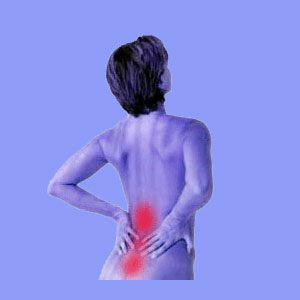
Sleeping with sciatica is a wonderful time of the day for some patients, but a stressful and painful event for others. Of course the reasoning here is greatly dependent on how the symptoms react to lying down and sleeping. In some patients, sleeping is their only relief, while in others, this is when symptoms worsen or even begin each night.
Sciatica symptoms are known for their incredible diversity and every patient seems to have their own individual symptomatic profile. Sciatica is rarely logical and for those poor suffering people who can not even get a night’s rest due to their lower back and leg pain, the condition proves just how unpredictable it can truly be.
This article is dedicated to discussing why sleep can enact or exacerbate sciatica expressions in many patients.
Successfully Sleeping with Sciatica
Most sciatica patients enjoy a symptomatic respite after lying down to rest. The reclined position eliminates pressure on the spine and generally creates a relaxed mind and body, less likely to feel pain.
Some patients find that they must sleep in a certain position or with a pillow in between their legs to find comfort. Other patients are very picky about what type of mattress they sleep on. If it is too soft or too hard, they will likely suffer an acute bout of sciatic nerve pain in the morning; if they make it until morning without pain that is.
Clinically, reclining should relieve sciatica symptoms, since the usual diagnosis of sciatica involves placing the blame on a structural spinal abnormality, such as a herniated disc or osteoarthritic condition. It is well known that reclining allows the spine to decompress and the intervertebral discs actually gain height as we sleep. We are all a bit taller every morning than we are when we go to bed at night.
Not Sleeping Due to Pain
Despite the illogical notion, many patients find their pain worsens the moment they try to relax and sleep. They become acutely aware of the symptoms coursing through their lower limbs and might even experience severe sciatica spasms in their legs and lower back, resembling a tremendous charley horse.
These patients are particularly affected by their pain, since their bodies and minds are not allowed to rest peacefully and recover from the day’s misery. Their pain becomes cumulative and they become progressively more desperate to find relief. This is truly a living hell with no end in sight.
Sciatica insomnia can become a huge problem for many chronic sufferers.
Advice on Sleeping with Sciatica
Patients who get relief when lying down are typical and should be happy. However, if you are convinced that you need that special mattress or pillow or require sleeping in a certain position, then you have certainly been conditioned by your pain. This is a typical response to long-term symptoms and may even be a prime perpetuator of the condition.
Patients who can not sleep due to their increased sciatic activity at night demonstrate a higher likelihood of suffering from psychosomatic sciatica conditions. Do not be alarmed by this pronouncement, since the vast majority of chronic sciatica conditions have a psychological component relating to the cause, extension or intensification of symptoms. The body is certainly not an island, separated from the mind.
In very rare instances, there may be a purely structural reason for escalated symptoms while sleeping, such as a positionally-dependent pinched nerve. These circumstances can often be rectified with the help of your doctor or physical therapist.
You can hold on to those little pillows all you want. You can sleep only on your right side, in the fetal position. You can insist on placing that wooden board under your mattress for increased support. None of these things will actually cure your pain. They will merely help to feed that symptomatic monster which is trying so hard to keep your attention focused on your body; focused on your pain. If sciatica strikes primarily while trying to sleep, you must consider the mindbody reasons why.




